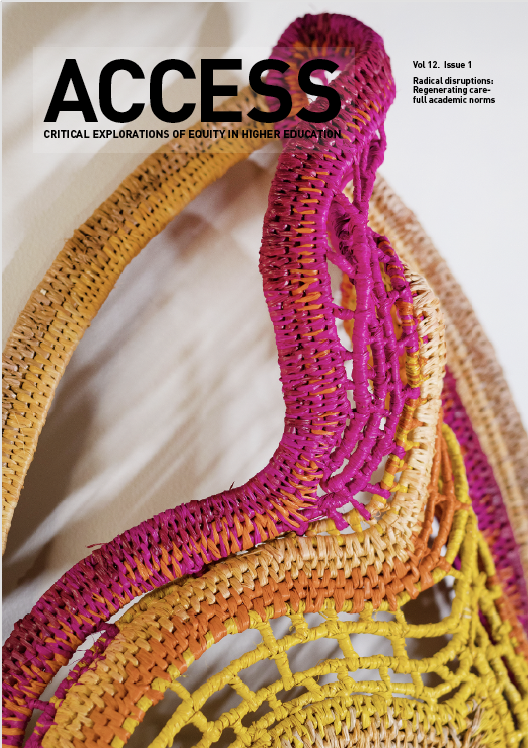News
"Living the best way possible: Distance doctoral students navigating care for others and themselves"
A new paper from DEAR deputy director Dr James BurfordLink opens in a new window has just been published. Written with Dr Katrina McChesneyLink opens in a new window from The University of Waikato, New Zealand and Prof Liezel FrickLink opens in a new window from Stellenbosch University, South Africa the paper is titled "Living the best way possible: Distance doctoral students navigating care for others and themselves".
It is part of a Special Issue of the journal "Access: Critical explorations of equity in higher education" that engages with academic cultures through the conceptual lens of care.
The special issue is titled "Radical disruptions: Regenerating care-full academic norms" and is edited by Prof Marie-Pierre MoreauLink opens in a new window at Angia Ruskin University, UK and Dr Genine HookLink opens in a new window from the University of New England, Australia.
Caring responsibilities can shape how students negotiate access, experience and success in doctoral education. However, norms that construct the ideal university subject as ‘carefree’ continue to circulate, framing the experiences and expectations of doctoral students, their supervisors, and others who work with them.
This paper shares care-related insights from an international survey involving 521 doctoral students across 42 countries who undertook their studies wholly or partly off-campus. Over half of these respondents had caring responsibilities for others, underlining the importance of distance modes for student carers. Many carer respondents felt distance modes offered the best way possible to organise life, education, and caring responsibilities. Care for self was also an important thread throughout the data, encompassing students managing specific physical or mental health needs as well as being proactive in caring for themselves through the challenges of doctoral education.
Finally, in terms of care that respondents received rather than provided, peer connections with other doctoral students were emphasised as critical sites of care that enabled wellbeing and success. Given that both off-campus students and student carers have often been rendered less visible in higher and doctoral education, this paper brings new insights into the important nexus between distance study and care – in multiple forms – for doctoral students.
To find out more information and access the paper and the journal special issue, please go to:-
- "Living the best way possible: Distance doctoral students navigating care for others and themselves"Link opens in a new window
- "Radical disruptions: Regenerating care-full academic norms"Link opens in a new window

